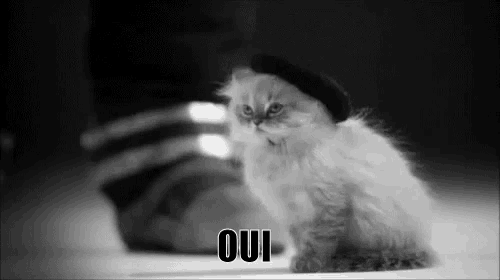Hello friends, today I would like to share with you what I search for often in the dictionary but can't seem to memorize, use, or understand exactly what it means. It is 'pour que’.
Just a heads up, I'm not a professional teacher, but rather another learner. The information I share might not be entirely accurate.
Hands up if you've ever come across 'pour que' in the middle of a sentence and have never fully understood exactly what it is, when to use it, or why it exists.
If you are like me, welcome and let’s dig in 🎉
What is “pour que”
Tout d’abord… If I translate in English… it means, “for that”? I will give you a sentence and try to understand them :
Je vais étudier pour que je réussisse mon examen. (I will study to pass my exam)
I guess you understood what the sentence means according to its context?
So, we can say “pour que” as “to” or “in order to”? Certainly !
However, this way of thinking works sometimes, but not always.
There is a “que”
Did you notice that there is a “que” after "pour"? And do you remember that when there is a “que,” the subject and verb must come after it?
If you don’t remember, take another look here to revise relative pronouns like "que," "qui," "où," and "dont."
In the sentence we just looked at, you can also observe a subject and a verb.
Je vais étudier pour que je (subject) réussisse (verb) mon examen.
When it appears in the middle of a sentence like this, instead of merely memorizing it as “in order to” or “to,” it’s simpler to think of it as “so that.” I know it’s a minor difference and they all mean the same thing, but it is something!
“In order to” and “to” don’t necessarily require a whole sentence after them, whereas “pour que” requires a complete sentence. Therefore, when we try to translate “pour que” in our minds, try to use “so that,” because after “so that,” we tend to use a full sentence.
Above all, as you remember "pour que" introduces a purpose or a goal, you won’t get confused easily!
Wait.. “so that”?
DO NOT GET CONFUSED WITH…
If you directly translate '“so that” to French, highly likely you will think…
Alors que
However, “Alors que” does not mean “so that” but “while”, “as”, “whereas”, “when”, “whilst”…
“Pour que” + subjonctif
What subjonctif ?! Yes. When you use “pour que”, we have to use subjonctif form of the verb for the sentence after “que”.
If you forgot how to conjugate them, have a look at this post below.
Especially subjonctif is tricky for me because I cannot really pinpoint when to use them even though it is well described.
Subjonctif usually express necessity, desire, doubt, emotion, or purpose, among other things.
Therefore, I decided not to overload my brain but memorize one by one as I come across like this. I only intuitively use the subjunctive with these two: "il faut que" and "pour que." I'll start with those, and when I encounter more subjunctive expressions, I'll learn them then ;)
Examples
Je travaille dur pour que mes enfants et moi puissions aller en vacances en Corée.
Elle m'a aidé pour que je puisse finir à temps.
Je t'explique pour que tu comprennes mieux.
Il a commandé un taxi pour que nous arrivions à l'heure.
Nous avons planté des arbres pour que l'environnement soit préservé.
Did you understand better about “pour que” and will remember using subjonctif with it? I believe to make it stick, it is crucial to make your own sentences. Why not make some sentences today with “pour que” and revise subjonctif ?









